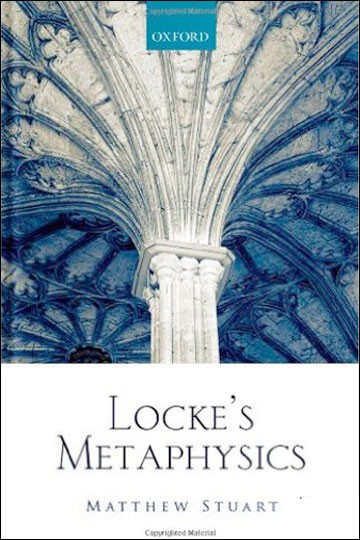
- Publisher: Oxford University Press
- Available in: Hardcover, Ebook
- ISBN: 9780199645114
- Published: September 15, 2013
Though John Locke set out to write a book that would resolve questions about the origin and scope of human knowledge, his Essay Concerning Human Understanding is also a profound contribution to metaphysics, full of arguments about the fundamental features of bodies, the notions of essence and kind, the individuation of material objects, personal identity, the nature and scope of volition, freedom of action, freedom of will, and the relationship between matter and mind. Matthew Stuart examines a broad range of these arguments, and explores the relationships between them. He offers fresh interpretations of such familiar material as the distinction between primary and secondary qualities, and Locke’s account of personal identity; and he also takes us deeper into less familiar territory, including Locke’s case against materialism and his philosophy of action.
Locke’s Metaphysics shows Locke to be a more consistent, systematic and interesting metaphysician than is generally appreciated. It defends him against charges of muddling the definition of ‘quality’, of waffling between two conceptions of secondary qualities, and of vacillating in his commitment to mechanism. It shows how his rejection of essentialism leads him to embrace relativism about identity, and that his relativism about identity is the key to defending his account of personal identity against several objections.
Yet the picture of Locke that emerges is not always a familiar one. Stuart’s account reveals that he is a philosopher who denies the existence of relations, who takes bodies to be colored only so long as we are looking at them, and who is not committed to mechanism. He shows that Locke takes persons to be three-dimensional beings whose pasts are ‘gappy’ rather than continuous. Finally, he shows that Locke is a volitionist who holds that we can will only our own thoughts and bodily motions, and not such episodes as lighting a candle or turning the pages of a book.
- An original approach to a classic text
- Places Locke’s views in relation to current developments in philosophy
- Illuminates connections between key arguments
- Novel solutions to longstanding problems
Acknowledgements
Preface
1. Categories
2. Qualities
3. Secondary Qualities
4. Essence
5. Substratum
6. Mind and Matter
7. Identity
8. Persons
9. Agency: the First Edition
10. Agency: the Revised Account
Bibliography
Index
“Locke’s Metaphysics is a grand book. Matthew Stuart is a fantastic philosopher and wields his talents well in this book…. Stuart’s book shines as an exemplar of analytic history of philosophy and is a must read for anyone working on Locke’s metaphysics.”–Benjamin Hill, Notre Dame Philosophical Reviews